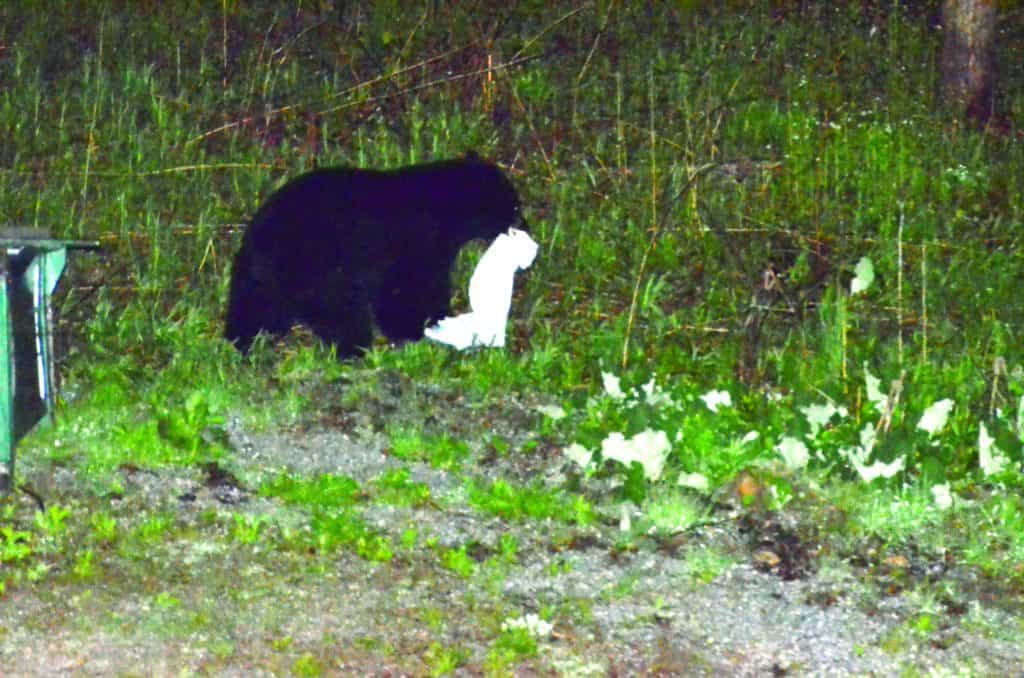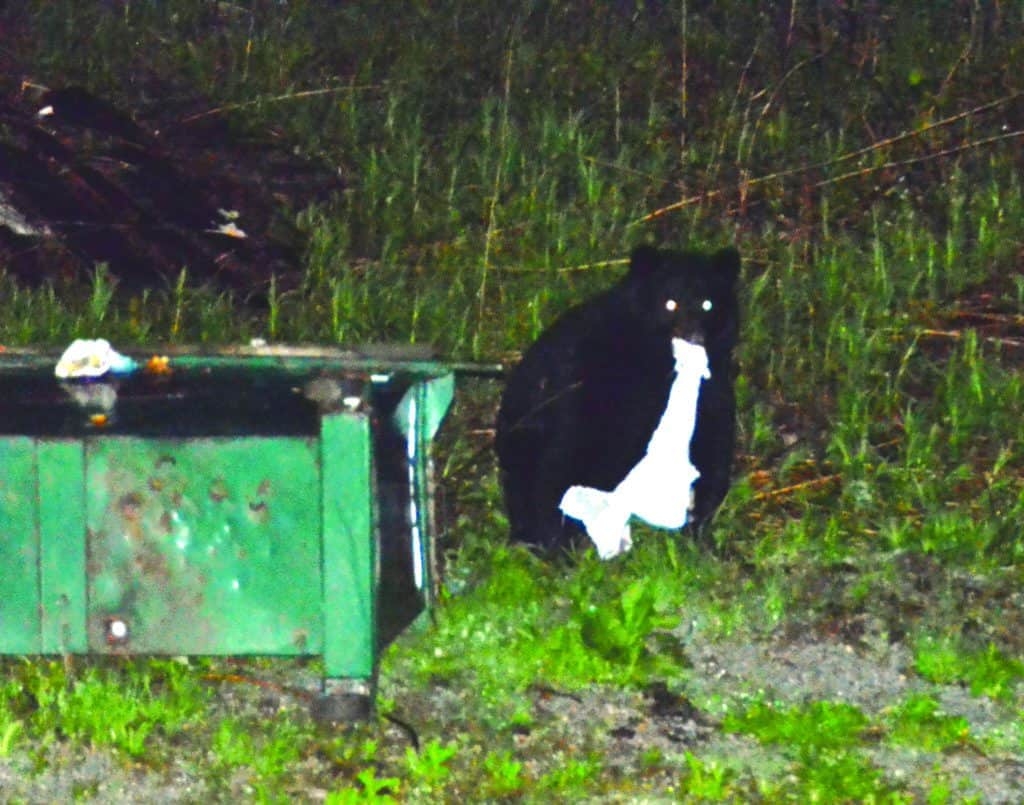

Every year, hundreds of people contact the Vermont Fish and Wildlife Department about bear interactions, and sometimes about conflicts that are ultimately deadly for the bear.
“When a bear is fed, directly or indirectly, its life expectancy is likely reduced,” said Forrest Hammond, the black bear project leader at Vermont Fish and Wildlife. “We frequently remind people that ‘a fed bear is a dead bear.’ Bears that eat food from human yards can be struck by cars or injured or shot by someone protecting their property. That’s why it’s important to properly secure your garbage and take down your birdfeeders for the season.”
On April 27, the Vermont Department of Environmental Conservation (DEC) asked Vermonters to help haulers and waste workers by putting trash and recycling bins on the curb the night before pickup due to temporary schedule changes of many haulers. However, for people living in bear country, DEC asks residents to put their trash, recycling, and food scrap bins on the curb the morning of pick-up to reduce the chance that a bear will encounter them.
“There’s often a need to balance one concern against another. We heard from people living in bear country that putting bins out the night before could attract bears, so these residents should put bins out the morning of pick-up,” said Josh Kelly, the Materials Management Section Chief at DEC.
As more people have moved into Vermont’s bear habitat, bear-human interactions have increased, and bears sometimes seek easily accessible food from humans, like birdseed, garbage, and pet food.
“You can help Vermont Fish and Wildlife maintain a healthy bear population by making your property unattractive to bears. This includes taking down birdfeeders until December and storing garbage where bears can’t get to it,” Forrest added, “We all must do our part.”
During the Stay at Home Order in Vermont, streets have been increasingly quiet, and wildlife have ventured into downtown neighborhoods. If there is any chance of a bear coming into your yard, please diligently follow Vermont Fish and Wildlife’s advice on living with black bears.
Learn more at vtfishandwildlife.com.




